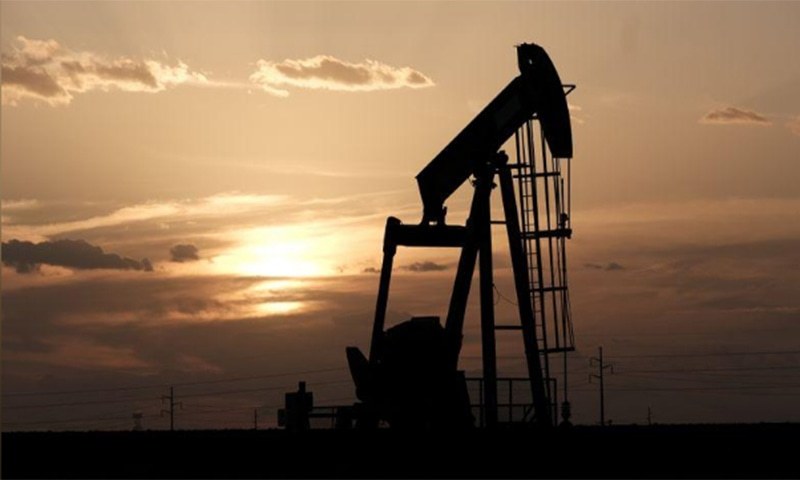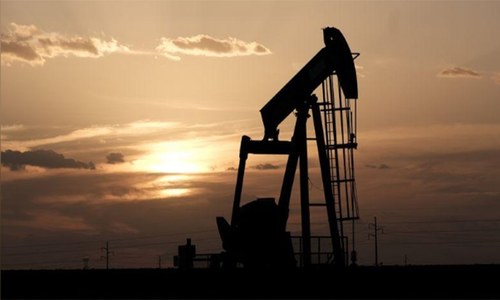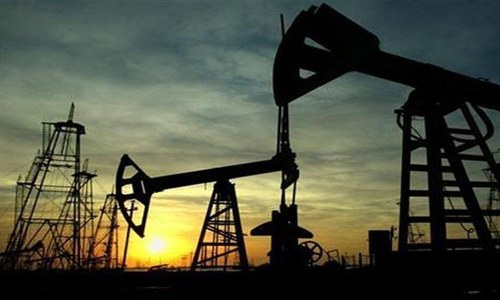OIL-RICH Gulf Arab countries owe their eminence to two things: the dependence of the world on them to meet their ‘rising’ energy needs and the accruing petrodollars. Both are now under threat.
These petrodollars have transformed the oil-producing Gulf Arab countries into lucrative markets for all sorts of products – from arms and ammunitions to branded items of all kinds. Everyone, from US President Donald Trump to Emmanuel Macron of France, just to name a few, wants a slice of this huge cake. It is also no news that those who can resort to arms twisting, do so, to obtain an even bigger slice of the pie.
On the other hand, global dependence on Gulf Arab producers for energy is shrinking too. Shale has revolutionised the energy world. The US, and not Saudi Arabia, is now the world’s top oil producer. Alternatives are coming to fore. The green movement is gaining pace. Electric vehicles are a reality. Demand is under a cloud.
Faced with the coronavirus epidemic, the global oil demand is set to shrink further. Global oil demand in the first three months of 2020 is expected to drop by 435,000 barrels per day (bpd) compared to a year earlier, the International Energy Agency is projecting.
The agency also marked down its forecast for oil demand growth for the whole of 2020. It is now expected to increase by just 825,000 bpd, the weakest annual pace since 2011.
The Organisation of the Petroleum Exporting Countries (Opec) has also slashed its global oil demand growth forecast for 2020, bringing its oil demand growth estimate down by 230,000 bpd from last month’s assessment. Opec has also revised down its oil demand estimate for China by 400,000 bpd for H1 and by 200,000 bpd for the full year 2020.
“The impact of the coronavirus outbreak on China’s economy has added to the uncertainties surrounding global economic growth in 2020, and by extension global oil demand growth in 2020,” the Opec said. The organisation also revised down its estimate of its crude demand by 200,000 bpd to 29.3 million bpd, or about 1.3m bpd lower than the 2019 level.
The US Energy Information Administration (EIA) has also lowered its 2020 price forecasts for WTI oil at $55.71 a barrel, down 6 per cent from its previous view. It also cut its Brent crude price forecast by 5.5pc to $61.25 for 2020.
Assessing the impact of the virus, Rystad Energy has also revised its annual global oil demand growth forecast down by a whopping 25pc to 820,000 barrels per day (bpd) in 2020, and “as low as 650,000 bpd year on year in the worst-case scenario”.
As per Rystad, the projected global oil demand growth in the first quarter will be almost entirely wiped out. Its current estimates show that demand will grow by only 0.1 million bpd in 1Q20, a steep decline from a previously projected year-on-year growth of 1.2m bpd.
IMF’s mid to long term projections are frightening in some senses. Global oil demand is likely to peak around 2041 at about 115 million barrels a day and gradually decline from there, according to the report.
Interestingly, this demand destruction is also threatening the very purse of the Arab Gulf oil producers that helped them grow in stature on the global stage. The International Monetary Fund (IMF) now says that in less than a decade and a half, the six members of the Gulf Cooperation Council could see their combined $2 trillion wealth wiped out. At the current pace of fiscal reforms, income, and spending, the six oil producers will see their current $2tr wealth exhausted by 2034, the IMF said.
With oil losing its eminence, Saudi Arabia and other oil producers in the region do not only lose their key leverage in the regional and international politics, they also begin to lose the petrodollars that have been paying for the lifestyle in the Arabian Gulf.
The geopolitical landscape is undergoing a massive change.
And it is not only the Gulf Arab oil producers who are faced with this scenario. Western Europe’s top oil and gas exporter, Norway, is also faced with a similar scenario and its leaders are taking cognizance of the writing on the wall.
Norway should reduce its dependence on income from its sovereign wealth fund and the petroleum revenue from which it was built, the country’s central bank governor said in his annual address to government and business leaders recently.
Tough times are on the horizon, especially for the Gulf Arab oil-dependent economies, and would carry ramifications far and wide. Pakistan would be no exception.
Published in Dawn, February 16th, 2020














































